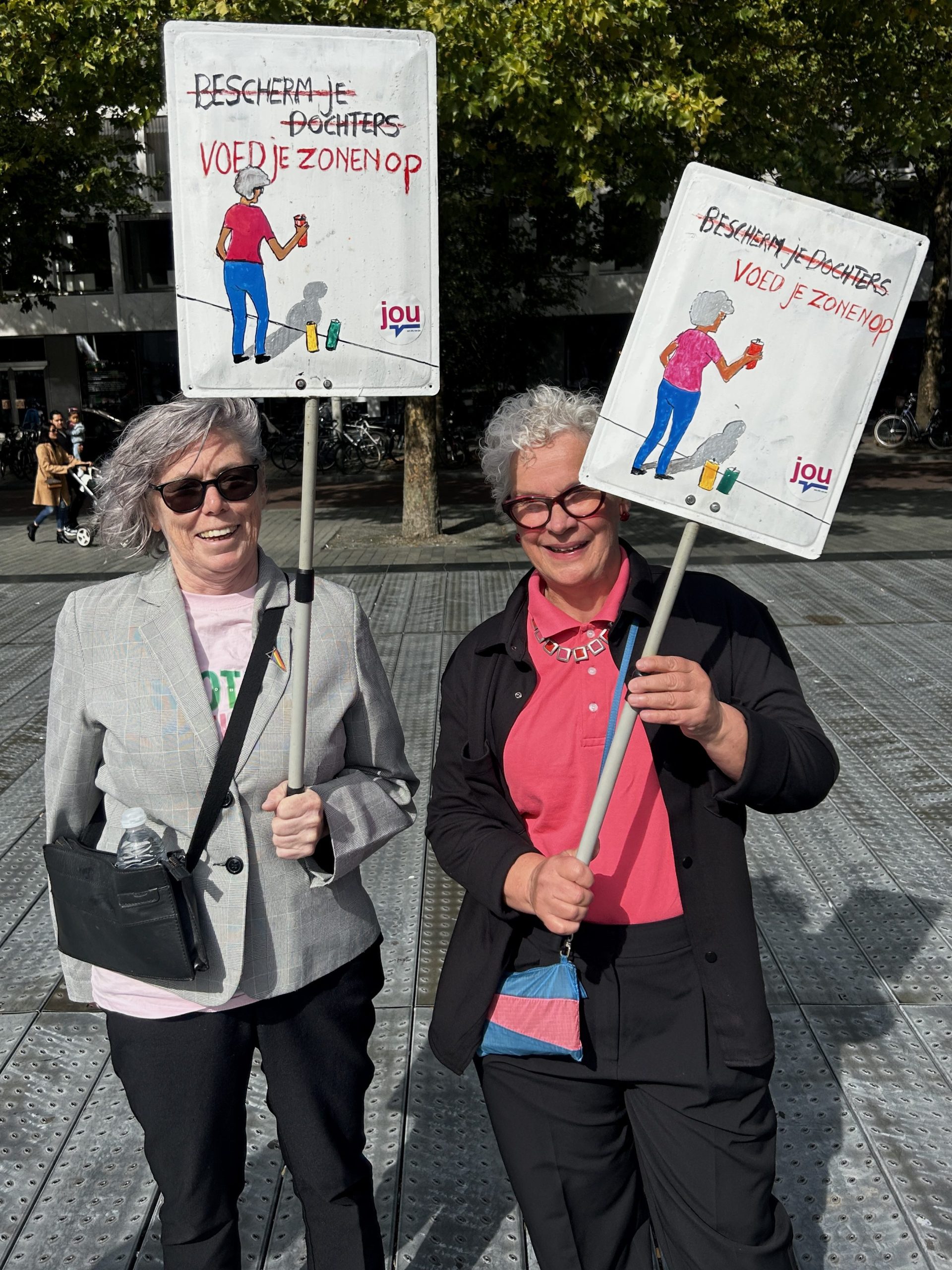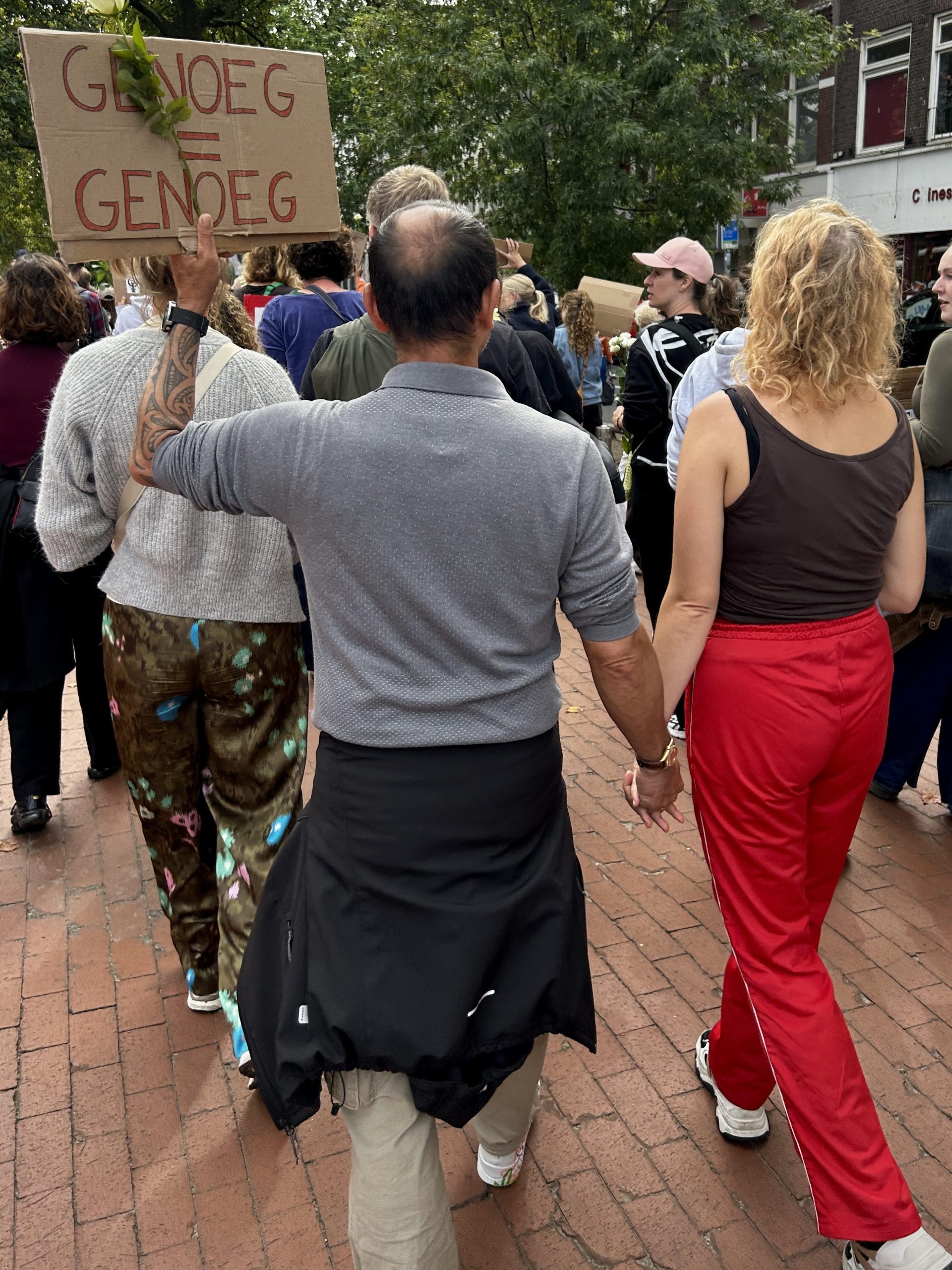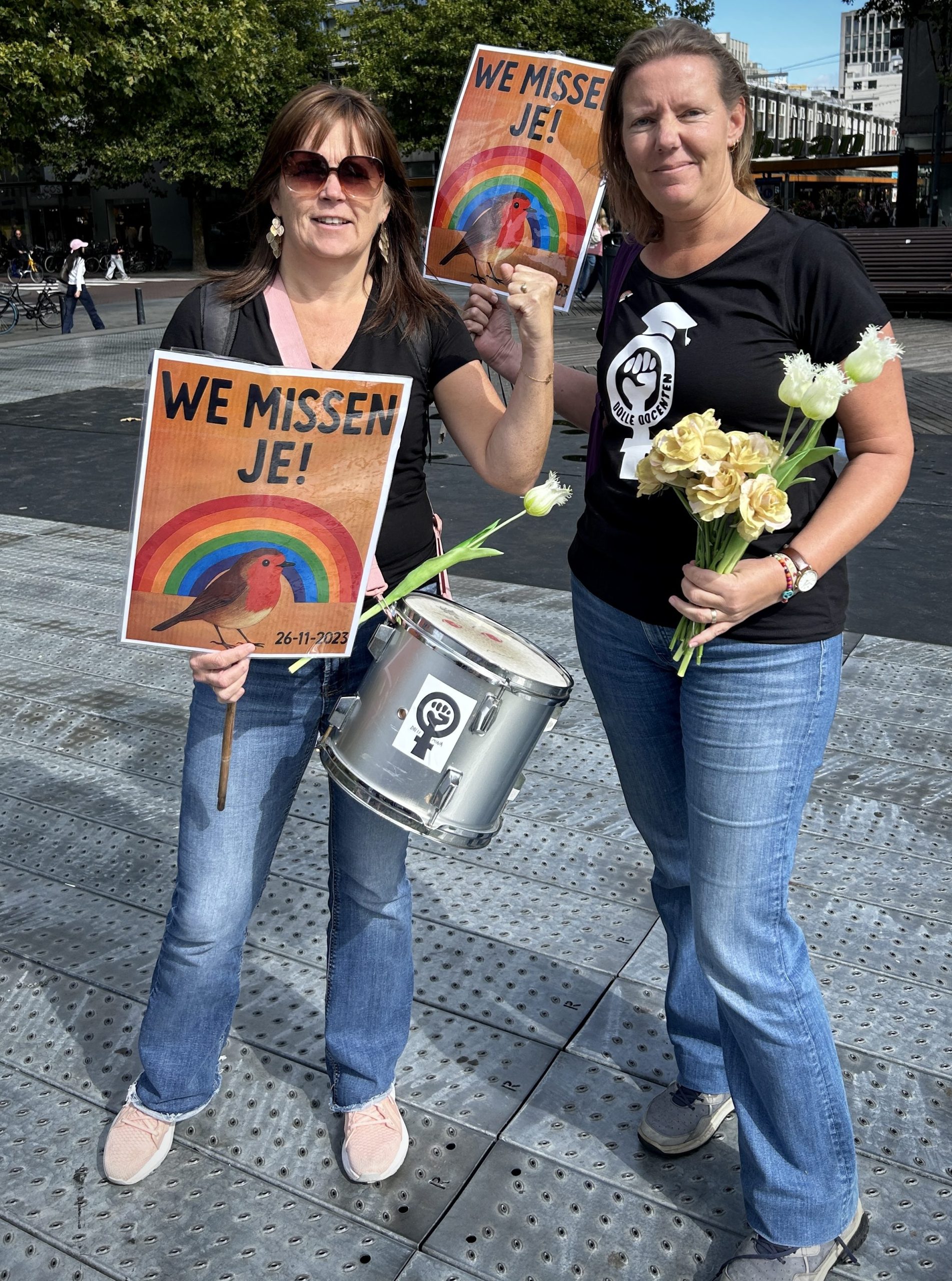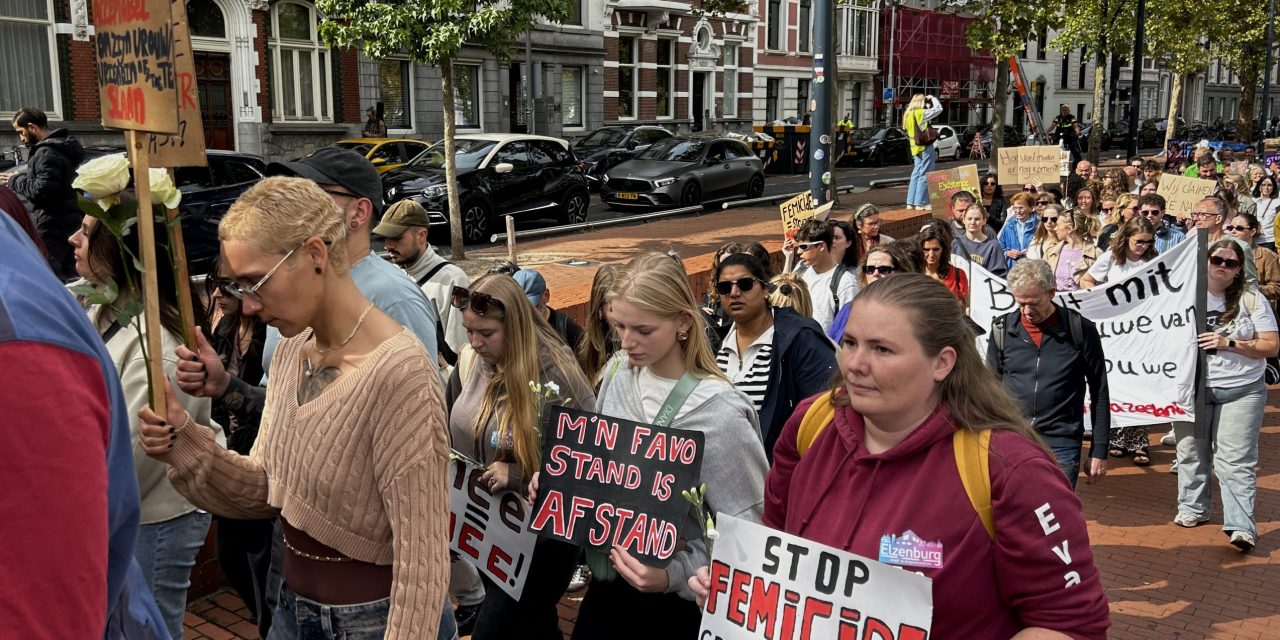Feminist group Dolle Mina has returned to the streets of The Netherlands, demanding that the government recognises femicide as a distinct crime. Activists say the country is behind other countries like Italy, where the murder of student Giulia Cecchettin triggered a national debate and new legislation.
‘It is not every man, but it is always a man.’ With those words, one of the founders of Dolle Mina, Dunya Verwey explains why she and others have brought back the feminism group. The group, once known for its radical actions in the 1970s, is being revived by a younger generation. The focus this time is not only equal pay or abortion rights, the growing number of femicides.
‘The first femicide march was on August 3rd, and that was after three femicides happened in one week’, said Dunya Verwey. ‘That was the point where we said: this can’t go on like this anymore.’ Verwey says the problem is partly one of visibility. Killings of women by partners or ex-partners are usually registered as homicide, with no mention of gender. ‘Every time again there are red flags which are ignored.’



Italy’s wake-up call
The Netherlands’ debate mirrors Italy’s, where the brutal killing of 22-year-old Giulia Cecchettin in November 2023 shocked the nation. She was found near Venice, stabbed more than forty times by her ex-boyfriend. The case sparked nationwide marches and symbolic protests: red shoes lined piazzas, red benches appeared in parks, and schools began teaching hand signals women can use to show they are in danger.
These nationwide initiatives forced political change. Earlier this year, Italy passed a law recognising femicide as a separate crime, explicitly naming gender as the motive. ‘Italy is a frontrunner not because it solved the problem, but because the crisis is so visible.’, said Andrea Vreede, NOS correspondent in Italy. ‘Giulia’s case created a turning point for Italy.’
The Dutch “Lisa”
Andrea Vreede points to Lisa from Abcoude as a parallel. The 17-year-old was cycling home from Amsterdam in August 2025 when she was attacked in Duivendrecht. She managed to call emergency services but was found minutes later with stab wounds. A 22-year-old man is in custody on suspicion of her killing and a separate sexual assault. Vreede sees the resonance. ‘Lisa could become the Dutch equivalent of Giulia. The question is whether politics will seize that moment or let it fade away.’
Dutch response still cautious
So far, the Dutch government has responded cautiously. It is preparing a law against psychological violence, but femicide is still not recognised as its own crime. The official data, however, show the scale of the problem. In 2023, 41 women were murdered in the Netherlands, according to CBS). More than half of them were killed by a current or former partner. That figure has remained steady in recent years, with around 40 women murdered every year
Italy faces similar realities. 125 women were killed in 2022, including 61 by partners, according to the European Institute for Gender Equality. ‘In Italy, the numbers made the crisis impossible to ignore. In the Netherlands the figures are just as stark, but the debate is far quieter’, said Andrea Vreede. Dunya Verwey believes the Netherlands could learn from Italy. ‘In Italy for instance, violent fathers can lose parental rights much faster’, she said. ‘Here, family privacy is often protected more than the woman herself.’




